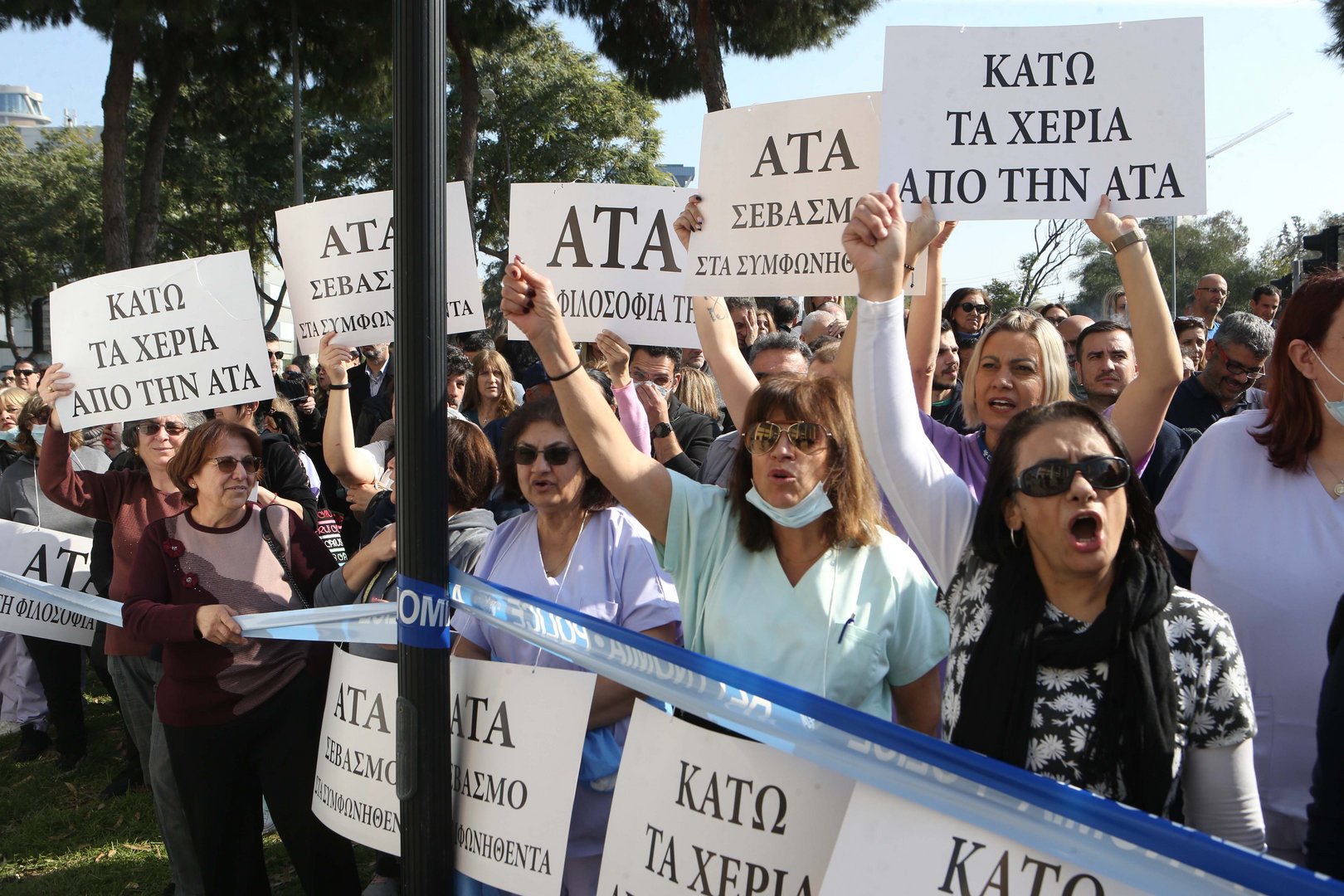The leaders of all the big unions met on Monday to decide their demands and plan of action for 2025. They decided that they would follow collective action in seeking the full restoration of CoLA, tax reform and the expansion of collective agreements; they have asked for a meeting with President Christodoulides to discuss their demands.
In an announcement they issued, they acknowledged the positive course of the economy and the fall in unemployment, while highlighting the need for the promotion of ‘dignity and quality at work,’ thus ensuring social coherence. They also underlined their commitment to the strengthening and further improvement of the institution of collective agreements “with the common reference point being the improvement of the quality and dignity at work and the linking of wages to the cost of living.”
Nowhere is there mention of productivity, which is clearly of no interest to the trade union movement, which is intent on linking wages to the cost of living and thus ensuring pay rises through a fully restored CoLA. A ‘fully restored’ CoLA would be based on the full increase of the cost-of-living index instead of the current 67 per cent of the increase. They want dignity and quality at work, but do not want the tools or incentives to increase productivity which would ensure healthy economic growth instead of the wage-fuelled inflation they propose.
It is sad that the big union federations – Sek, Peo, Deok – are uniting with the public sector unions which represent the overpaid, privileged workers. Why are these unions making the full restoration of CoLA one of their main objectives, when less than 30 per cent of private sector workers are entitled to it? Are they just helping public employees increase their wages via CoLA, without any attempt to improve productivity which has been unchanged for years? These union federations, which also represent some workers in the semi-governmental sector, are being used to improve the pay of the best-paid workers – civil servants, teachers, public hospital doctors and nurses.
Public sector workers are completely different from private sector workers. Wages, automatic pay increases, work conditions, job security, CoLA entitlement are very different in the two sectors, indicating that their respective unions cannot be demanding the same things. Underprivileged and ultra-privileged workers cannot possibly be fighting for the same cause, as they are not working under the same conditions.
Even the request to meet the president to discuss the union demands is for the benefit of the public employees. The president has no authority to interfere in pay negotiations and work condition in the private sector; the government cannot decide pay increases or impose CoLA at private businesses. But he certainly can satisfy the demands of teachers, civil servants, police etc, as his government has repeatedly done since coming to power.
Of course, the president should not be dealing with labour relations and discussing the demands of the trade unions. There is a labour minister with this responsibility, even though he should also refuse to see the representatives of all the unions together. The labour market is not a homogeneous whole, so there is no rational justification for viewing the so-called ‘trade union movement’ as the body representing all workers. The government should avoid this at all costs because it might have great difficulty rejecting the demands of the entire union movement.






Click here to change your cookie preferences